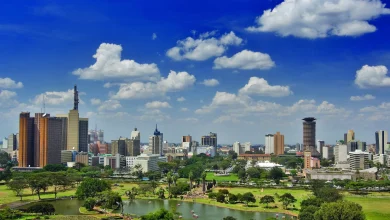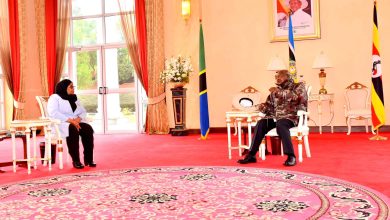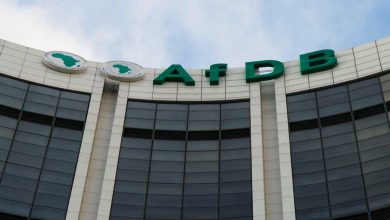Partners call for ‘big tent’ approach to Africa’s energy access

DAR ES SALAAM: INTERNATIONAL development partners have stressed the importance of a collective, multi-stakeholder approach to tackle Africa’s energy access challenges.
They called for collaboration among governments, international financial institutions, the private sector and philanthropic organisations to create sustainable, scalable solutions.
These remarks were made during a panel discussion at the Mission 300 Africa Energy Summit, which opened yesterday at the Julius Nyerere International Convention Centre (JNICC) in Dar es Salaam.
CEO of the Mission 300 Accelerator at Rockefeller Catalytic Capital, Mr Andrew Herscowitz, underlined the urgency of such collaboration to ensure the success of the Mission 300 initiative.
He advocated for a “big tent” approach, bringing together not only philanthropic organisations and multilateral development banks (MDBs) like the World Bank and African Development Bank (AfDB), but also private sector partners and other global development actors.
“Through its Rockefeller Foundation and RF Catalytic Capital, we’ve already facilitated the development of 23 technical assistance projects aimed at jumpstarting key World Bank and AfDB initiatives,” Herscowitz said.
“These projects address barriers to energy access, such as regulatory hurdles and financing gaps and will help create a pipeline of 130 specific projects to reach 300 million people.”
CEO of Agence Française de Développement (AFD), Mr Remy Rioux reiterated the agency’s longstanding commitment to energy access, stressing the importance of a tailored approach to meet the diverse needs of African countries.
“AFD is committing to invest 2 billion euros annually in the energy sector, with a focus on both on-grid and off-grid solutions in countries such as Ivory Coast, Tanzania and the Democratic Republic of the Congo,” Rioux said.
President and Chair of the Board of Directors of the Asian Infrastructure Investment Bank (AIIB), Mr Jin Liqun, pledged the bank’s support with a commitment of 1.5 billion US dollars for Mission 300.
While acknowledging that this amount is not sufficient, Liqun insisted the need to leverage resources from MDBs, the private sector and philanthropic organisations to meet the 90 billion US dollar target for Africa’s energy transformation.
President of the Islamic Development Bank (IsDB) Dr Muhammad Al Jasser outlined his institution’s significant contributions, with 2.65 billion US dollars committed to energy projects across Africa.
“This includes financing from IsDB’s core operations, the Islamic Corporation for the Development of the Private Sector (ICD) and the International Islamic Trade Finance Corporation (ITFC), supporting renewable energy and energy infrastructure development,” he said.
Senator Claudio Barbaro, Italy’s Vice-Minister for the Environment and Energy Security, noted that Italy’s Mattei Plan aligns its development efforts with Africa’s energy needs.
ALSO READ: Historic moment for Africa
The country has committed 1 billion US dollars to Mission 300, focusing on co-financing and collaboration with organisations such as the World Bank and AfDB.
Italy also supports offgrid solar projects, grid access and clean energy exports from Africa to Europe, further strengthening the transcontinental energy linkages.
Regional Director and Special Representative of the OPEC Fund President, Dr Mahmoud Khene, pledged 1 billion US dollars in support of the Mission 300.
He emphasised the urgency of providing modern energy services and facilitating the transition to clean energy solutions.
“The combined efforts of international financiers and national stakeholders offer hope for meaningful progress,” Khene said.
“While pledges and commitments are crucial, the success of Mission 300 depends on effective coordination among diverse stakeholders—public, private, local and international.”
Khene also pointed out that energy is not only a key driver of socio-economic development but also essential in combating climate change.
He called attention to the timely relevance of Mission 300 in light of global environmental priorities.
The OPEC Fund has already invested over 1.6 billion US dollars in Africa’s energy sector over the past five decades.
This new pledge of 1 billion US dollars reflects the Fund’s continued commitment to addressing the continent’s energy needs.






Строительство – серьезный процесс, требующий опыта. Хорошо, что есть профессионалы Chtonamstoit.website
Строительство без головной боли – это возможно? Может, эти специалисты помогут?
Мы уверены в пожарной безопасности всех объектов. Компания использует сертифицированные огнезащитные покрытия, что подтверждает их надежность.
Качество огнезащитных покрытий – критически важный аспект. Мы довольны, что подрядчик сертифицирован по сертификату на огнезащитные покрытия Chtonamstoit.website
Мы ценим экологическую ответственность строительных компаний. Убедились, что здесь все работы ведутся в соответствии с сертификатом ISO 14001 Chtonamstoit.website